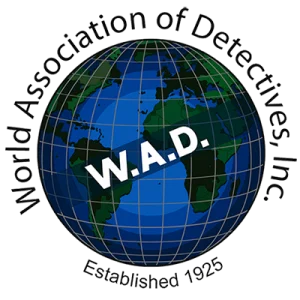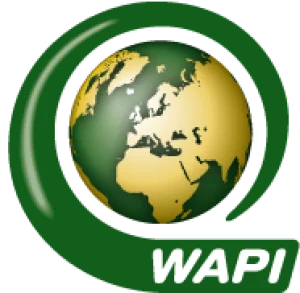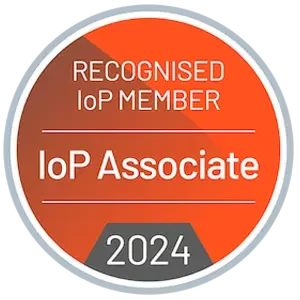In today’s interconnected world, lawsuits, contracts, and disputes increasingly cross national borders. A company in New York may sue a business in Madrid; a divorce case may involve a spouse living in Singapore; or a judgment creditor in Canada may need to notify a debtor in Brazil. Each of these situations requires one essential legal step: international service of process.
Serving legal documents abroad is not as simple as mailing a notice or hiring a local courier. It involves navigating a web of international treaties, regional regulations, and domestic laws that dictate how, where, and through whom legal documents can be properly served.
Among these frameworks, the Hague Service Convention, the Inter-American Service Convention, and EU Regulation 2020/1784 stand out as the main instruments shaping modern international process service. Together, they form the foundation of legal cooperation between nations — and determine how quickly and reliably documents move across borders.
This article explores how global and regional systems interact, how they affect lawyers and process servers, and why understanding these mechanisms is vital for anyone involved in cross-border litigation or commercial disputes.
1. Understanding International Service of Process
Before diving into treaties and regulations, it’s important to understand what international service of process means.
In simple terms, it refers to the formal delivery of legal documents from one country to another so that a defendant, witness, or other party is properly notified of legal proceedings. These documents may include:
-
Civil or commercial summonses
-
Complaints or petitions
-
Divorce papers or custody orders
-
Subpoenas or writs
-
Judicial notifications or extrajudicial documents
When documents must cross international borders, they can’t just be mailed or emailed. They need to follow specific legal procedures that ensure due process, respect foreign sovereignty, and comply with international law.
2. The Hague Service Convention: The Global Backbone
The Hague Service Convention of 1965 (formally known as the Convention on the Service Abroad of Judicial and Extrajudicial Documents in Civil or Commercial Matters) is the most widely adopted international framework for serving documents abroad. Over 80 countries — including the United States, the United Kingdom, Germany, Japan, and India — are signatories.
How It Works
The Convention established a central authority system. Each member country designates a Central Authority to receive service requests from other countries.
When an attorney in one country needs to serve documents in another:
-
They submit the request and documents to the foreign country’s Central Authority.
-
The authority arranges for service according to local laws.
-
Proof of service (a certificate) is returned to the requester.
This standardized method ensures:
-
Legal validity in both countries,
-
Uniformity in documentation, and
-
Predictability for lawyers handling cross-border cases.
Benefits
The Hague Service Convention provides:
-
Efficiency: No need for diplomatic or consular channels.
-
Transparency: Clear procedures and standardized forms.
-
Legal certainty: Courts recognize service under the Convention as valid and enforceable.
Limitations
However, not all countries are members. Where the Hague Service Convention doesn’t apply, parties must rely on Letters Rogatory (a formal request between courts) or informal service, which can be slower and less predictable.
3. Regional Systems: Building on the Hague Framework
While the Hague Service Convention provides a global foundation, regional organizations have created their own specialized systems to further simplify cross-border service within their regions. These regional agreements are usually faster and more integrated than the global model, thanks to stronger political and legal cooperation between neighboring states.
Let’s explore three of the most important ones:
a. European Union – Regulation (EU) 2020/1784
The European Union Regulation 2020/1784 is arguably the most advanced regional instrument for service of process in Europe. It replaced Regulation (EC) No. 1393/2007 and took effect in July 2022.
Key Features:
-
Direct Communication: Courts and transmitting agencies can communicate directly, bypassing embassies or ministries.
-
Digitalization: Introduces electronic communication and e-service through secure channels.
-
Standard Forms: Uses uniform forms across all EU Member States to reduce translation issues.
-
No Legalization Required: Documents don’t need apostilles or consular authentication within the EU.
Why It Matters
For attorneys handling cross-border cases within Europe — such as between France and Germany or Spain and Italy — the EU Regulation offers a faster and cheaper alternative to the Hague Service Convention.
However, when EU countries serve documents outside the EU (e.g., to the United States or Japan), they still rely on the Hague Service Convention.
In short, EU Regulation 2020/1784 doesn’t replace the Hague Convention; it complements and enhances it within Europe’s regional legal system.
b. Inter-American Service Convention
In the Americas, the Inter-American Convention on Letters Rogatory (1975) and its Additional Protocol (1979) — collectively known as the Inter-American Service Convention — provide a regional structure for document service among member states of the Organization of American States (OAS).
How It Works
The system allows a court in one member country (for example, the United States) to send documents to another (such as Mexico or Argentina) via a designated Central Authority.
The process is very similar to the Hague model, but tailored for countries in the Western Hemisphere.
Advantages
-
Regional familiarity: Procedures are standardized and known among OAS members.
-
Legal validity: Recognized by courts throughout the Americas.
-
Optional use: Where both the Hague and Inter-American conventions apply, the requesting party may choose the one best suited to their needs.
When It Applies
The Inter-American Service Convention is especially relevant for countries that are not members of the Hague Service Convention, such as many Latin American nations.
This provides a reliable mechanism for U.S. lawyers serving documents in Central or South America.
c. Other Regional Frameworks (ASEAN, AU, CARICOM)
Some regional groups are still developing their legal cooperation mechanisms:
-
ASEAN (Association of Southeast Asian Nations): Working toward legal cooperation through digital judicial networks, but no unified service convention yet.
-
African Union (AU) and ECOWAS: Support judicial collaboration, though service of process remains largely under national or Hague procedures.
-
CARICOM (Caribbean Community): Member states cooperate through mutual legal assistance treaties and rely on the Hague Service Convention where applicable.
These developing systems show that regional legal harmonization remains a goal for many parts of the world.
4. How Global and Regional Systems Work Together
Rather than competing, the Hague Service Convention and regional agreements complement each other.
They form layers of cooperation, ensuring that documents can legally move across borders at different levels of integration.
| Level | Legal Framework | Scope | Example Case |
|---|---|---|---|
| Global | Hague Service Convention (1965) | Worldwide | USA → Japan |
| Regional | EU Regulation 2020/1784 | Within EU | France → Germany |
| Regional | Inter-American Service Convention | Americas | USA → Mexico |
| National | Domestic service laws | Within a single country | Madrid → Barcelona |
When both a global and regional system apply, the sender can choose the faster or more efficient route.
For example:
-
A Spanish lawyer serving a defendant in France will use EU Regulation 2020/1784.
-
A U.S. lawyer serving in Mexico can choose between the Hague Service Convention and the Inter-American Service Convention, depending on procedural ease.
This flexibility allows legal professionals to tailor their strategy to each case.
5. The Impact on Legal Professionals
For lawyers, paralegals, and corporate counsels, understanding these systems is more than a procedural detail — it’s a matter of legal compliance and case strategy.
a. Predictability and Enforceability
When documents are served through the Hague Service Convention or a recognized regional mechanism, courts are more likely to:
-
Uphold the validity of service, and
-
Enforce resulting judgments or default decisions.
This minimizes the risk of procedural challenges that could delay or nullify litigation outcomes.
b. Cost and Time Savings
Regional frameworks like EU Regulation 2020/1784 and the Inter-American Service Convention eliminate layers of bureaucracy.
For instance:
-
No need for embassy approval or notarization.
-
No legalization or apostille required.
-
Standardized forms save translation costs.
These benefits can significantly reduce litigation expenses and speed up proceedings.
c. Access to Reliable Process Servers
A professional international process server familiar with the Hague and regional rules can:
-
Determine the correct method of service,
-
Handle document translations, and
-
File proper affidavits or certificates of service.
This ensures compliance and admissibility in court.
6. Challenges and Limitations
Despite progress, several challenges remain in international service of process:
-
Non-Member Countries – Many nations, especially in Africa and Asia, are not signatories to the Hague or Inter-American conventions. Service there often relies on Letters Rogatory, which can take months or even years.
-
Overlapping Treaties – When multiple conventions apply (e.g., between the U.S. and Mexico), confusion may arise about which procedure to use.
-
Translation Requirements – Even under standardized systems, documents often need to be translated into the official language of the receiving country.
-
Technological Barriers – Although the EU has embraced electronic service, many jurisdictions still require physical delivery by an authorized officer.
Nevertheless, understanding the available options helps legal professionals minimize these difficulties.
7. A Unified Goal: Legal Certainty Across Borders
Ultimately, all these treaties and regulations — whether global or regional — aim for one shared purpose: legal certainty.
They ensure that parties abroad receive notice of proceedings in a way that respects due process and international law.
This consistency strengthens:
-
Judicial cooperation between nations,
-
Recognition of judgments, and
-
Confidence in cross-border transactions.
In a global economy where companies, assets, and individuals frequently operate across jurisdictions, effective international service of process is essential for the rule of law.
8. Choosing the Right Path: Practical Guidance
When planning international service, legal professionals should consider:
| Question | Practical Consideration |
|---|---|
| Are both countries members of the Hague Service Convention? | If yes, follow the Hague procedure via Central Authority. |
| Are both countries members of a regional convention? | Use the regional system for faster results (e.g., EU or OAS). |
| Is the destination country outside any treaty? | Use Letters Rogatory or informal service, depending on local law. |
| Do the documents need translation or certification? | Always check the recipient country’s requirements. |
Collaborating with an experienced international process service company can ensure every step meets the necessary legal and procedural standards.
Conclusion: The Interconnected World of Process Service
The Hague Service Convention, the Inter-American Service Convention, and EU Regulation 2020/1784 together represent a global-to-regional network that enables courts and lawyers to reach parties abroad efficiently and lawfully.
They demonstrate how international cooperation — through both worldwide treaties and regional alliances — strengthens access to justice.
For legal professionals, mastering these systems means not only procedural compliance but also a competitive edge in managing cross-border cases.
Whether you are a law firm, a corporate legal department, or an individual needing to serve documents overseas, understanding these frameworks is crucial.
And when precision, timing, and compliance matter most, partnering with a trusted international process service company ensures that every document reaches its destination lawfully and efficiently.
Need to Serve Legal Documents Abroad? We Can Help
Our experts provide fast, compliant international process service through the Hague Service Convention, EU Regulation 2020/1784, Inter-American Service Convention and Additional Protocol (IACAP), and Letters Rogatory procedures.
Please call Stellar Konsulting at the phone numbers listed below or email us at operations@stellarkonsulting.com for an obligation-free quote covering the timelines, options and costs for international service of process.
📞 EMEA: +44 (20) 38905643
📞 USA: +1 (213) 786 1161
📞 Asia: +92 313-780-6280
📞 UK: +44 (20) 38905643
📞 Australia, New Zealand and Far East Asia: +61 2 7259 7299



















